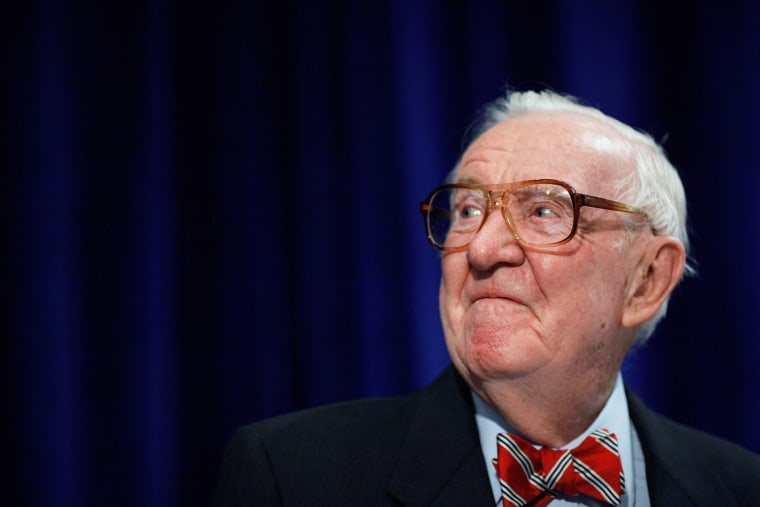Retired Supreme Court Justice John Paul Stevens told ABC News Sunday that it's "an appropriate thing" to consider who your successor might be when contemplating retirement.
"It’s an appropriate thing to think about your successor, not only in this job,” Stevens said on ABC's This Week. "If you’re interested in the job and in the kind of work that’s done, you have to have an interest in who’s going to fill your shoes."
Stevens, who was appointed by Republican President Gerald Ford, stepped down in 2010 and has since penned a book, Six Amendments, on changes he thinks should be made to the U.S. Constitution. Justice Elena Kagan was chosen to fill his seat on the high court. Supreme Court justices are appointed by the president, and the justices serve for life, so a single appointment can affect the course of the country for generations. An appointment to the Supreme Court is among the most long-lasting and significant decisions a president can make. Republican appointees to the high court currently outnumber their Democrat-appointed counterparts 5-4.
Justices Ruth Bader Ginsburg and Stephen Breyer, appointed by President Bill Clinton, are among the eldest on the court. Some liberal legal commentators have demanded Ginsburg, who is the eldest, step down to ensure her replacement is nominated by a president from the Democratic Party.
Asked directly about Ginsburg however, Stevens didn't say she should retire. "I’d say she doesn’t need my advice," Stevens said.
